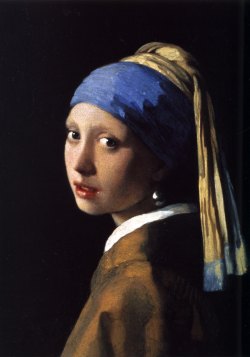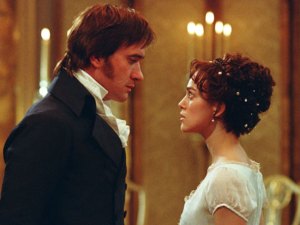Interview: Deborah Moggach, writer
The celebrated author talks about adapting Jane Austen, the British film industry and her experiences in Ghana


Deborah Moggach is not one to blow her own trumpet, despite her 16 novels, BAFTA-nominated screenplay (Pride and Prejudice) and multiple film and television adaptations. ‘Intellectuals can't write novels—they burden characters with philosophical arguments. I'm a bit simple,' she announces. ‘I don't write with a message—I don't have more to say than anyone else. I try to see the world fresh, like a child.'
Miss Moggach is curled up on the sofa in the Bohemian sitting room of her Hampstead home. When she speaks about her work, such as her celebrated historical novel, Tulip Fever, she becomes animated in downplaying her skill. ‘I was interested in the period, so I didn't have to do too much research. The main thing was not to put in anything horribly inaccurate. Novels are a confidence trick—talking about people who don't exist—so you can't give the reader any signs of it being a ruse.' People often ask if she'll write a sequel, but she claims to be ‘an environmentally friendly writer—no waste. All my knowledge of the period went into that book'.

One of the Dutch paintings that inspired Tulip Fever hangs on Miss Moggach's wall, next to Vermeer's Girl with a Pearl Earring, subject of Tracy Chevalier's novel. ‘Tracy and I are friends, and we had a bet about whose film adaptation would be finished first; the winner would buy lunch at The Ivy.
‘Tulip Fever was about to go into a $48 million production, with Steven Spielberg directing and Keira Knightley, Jude Law and Jim Broadbent starring. They'd sunk the sets into canals and planted 12,000 tulips, but then Gordon Brown suddenly cancelled a tax loophole for British film and we couldn't raise more funds in time. I bought 500 of the tulips for friends, and gave a box to Tracy at The Ivy.'
Miss Moggach hopes that the project might be resurrected: ‘The novel's theme of market meltdown resonated then because of the dotcom crash; now, we have the recession.'
She's understandably irate about state of the British film industry: ‘It was thriving, but now, the Government says it supports the Arts and won't back that up with funding.' However, she's a big fan of the filmmaking process, and has adapted several of her novels. ‘I'm ruthless with my own work—I cut out huge chunks and end up with a much better plot. Everything has to serve the drama on screen.'
However, she felt enormous pressure with Pride and Prejudice, because ‘people are very proprietorial about it, and want you to keep in their favourite bits'. At first, she wasn't sure about the casting of Keira Knightley as Elizabeth Bennet—‘we love Lizzy because she gives us normal women hope that we'll win the man through our wit and intelligence, rather than looks, and Keira's so beautiful. But this is Hollywood—Joan Fontaine, the great beauty of her age, was cast as plain Jane Eyre.'
Exquisite houses, the beauty of Nature, and how to get the most from your life, straight to your inbox.

Miss Moggach's parents were both writers, and instilled in her a puritanical discipline when it comes to the craft, but she didn't find her voice until she moved to Pakistan. ‘I was liberated, stripped of the past.' Despite that liberation, many of her novels contain elements of her own experiences. ‘Once a novel is simmering away in my brain, everything feeds into it—friends' stories, what people buy in the supermarket. I use my children ruthlessly. I don't consider writing therapy, but one can use it to explore emotions, such as my experience of divorce.'
Recently, Miss Moggach has experienced a very different world in the form of trips to Palestine and Ghana. The Palestine Festival of Literature, involving ‘writers banging around on a bus on the West Bank', was ‘enraging—events were shut down at gunpoint. One can't imagine living like that, not knowing what will happen tomorrow, next week, next month'.
Her Ghana trip, with Plan International, allowed her to speak to young women about their lives, from selling fast food at the roadside to playing football and trying to study. ‘I was struck by the presence of religion everywhere, such as the Jesus Saves Hairdressers, and, of course, the abstinence policy. But, honestly, when there's no electricity, what else is there to do in the dark? They'd be better off handing out condoms in schools, so these girls have a chance. I wrote an imaginative piece about it—hopefully, it'll bring it alive more than official reports.'
The ever-modest Miss Moggach refuses to take credit for her work: ‘I just feel lucky to have those doors opened to me—it's the real perk of being a writer.'
Deborah Moggach's Ghana piece is published in the anthology ‘Because I am a girl' by Random House (£8.99)
Country Life is unlike any other magazine: the only glossy weekly on the newsstand and the only magazine that has been guest-edited by His Majesty The King not once, but twice. It is a celebration of modern rural life and all its diverse joys and pleasures — that was first published in Queen Victoria's Diamond Jubilee year. Our eclectic mixture of witty and informative content — from the most up-to-date property news and commentary and a coveted glimpse inside some of the UK's best houses and gardens, to gardening, the arts and interior design, written by experts in their field — still cannot be found in print or online, anywhere else.
